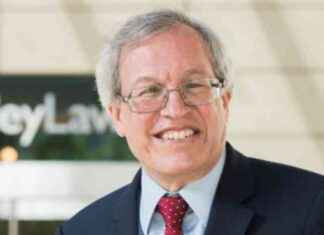The U.S. Court of Appeals for the Federal Circuit (CAFC) has made a significant decision regarding the qualifications required for offering expert testimony in patent cases. In a precedential ruling, the CAFC rejected the argument put forth by Planmeca Inc. USA that a person of ordinary skill in the art (POSITA) must have had the necessary experience at the time of invention, rather than at the time of testimony. Judge Stoll authored the opinion in this case.
Osseo Imaging LLC had filed a lawsuit against Planmeca for infringement of several patents related to 3D imaging systems. Following a trial, the jury found that Planmeca had directly infringed all but one of the asserted claims and that none of the claims were invalid for obviousness. During the trial, the jury was instructed that a person of ordinary skill in the art would typically have a bachelor’s degree in electrical or computer engineering, along with 3 to 5 years of experience working in a diagnostic imaging environment utilizing the techniques described in the asserted patents.
Planmeca’s counsel attempted to challenge Osseo’s technical expert, Dr. Omid Kia, during cross-examination by questioning his lack of 3-5 years of diagnostic imaging experience in 1999, the alleged date of invention. However, the CAFC noted that Planmeca did not file a Daubert motion to exclude Dr. Kia’s testimony on the basis of his lack of ordinary skill in the art. Additionally, Planmeca did not appeal the denial of a motion to exclude Dr. Kia’s testimony or an objection to that testimony during the trial.
The district court denied Planmeca’s motion for Judgment as a Matter of Law (JMOL) on invalidity and noninfringement, stating that substantial evidence supported the jury’s verdict. The court also rejected Planmeca’s argument that an expert must attain expertise before a patent’s effective date, emphasizing that no legal requirement exists for such timing.
On appeal, the CAFC addressed Planmeca’s failure to challenge Dr. Kia’s qualifications through a Daubert motion or appeal and rejected the argument that Dr. Kia’s testimony did not constitute substantial evidence. The CAFC emphasized that an expert offering testimony in a patent case must possess ordinary skill in the art, with no additional timing requirement for when that skill was acquired.
Planmeca’s reliance on previous cases to support a timing requirement for expert qualifications was deemed unpersuasive by the CAFC. The court emphasized that imposing such a requirement would not align with the nature of expert testimony in patent cases.
The CAFC also dismissed Planmeca’s arguments regarding infringement and obviousness, stating that substantial evidence supported the jury’s findings in both aspects. The court highlighted that the jury had received sufficient evidence from Dr. Kia to determine infringement and non-obviousness in the case.
In conclusion, the CAFC’s decision clarifies that an expert offering testimony as a POSITA in a patent case must possess ordinary skill in the art, with no specific timing requirement for when that skill was acquired. The ruling reinforces the importance of substantial evidence in determining infringement and obviousness in patent cases.











